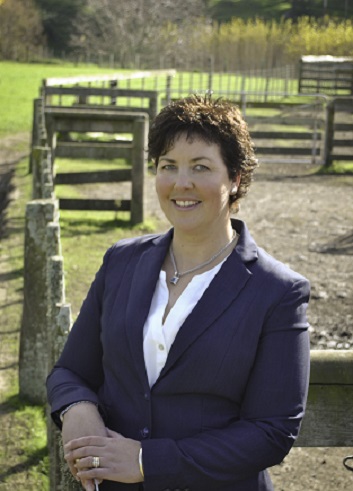Tairawhiti Spatial Plan deserves in-depth analysis and thought
by Sandra Faulkner, President Gisborne/Wairoa Federated Farmers
 Nothing worth having comes easily. Overcoming adversity, living with the unknowns of nature and, nonetheless, persevering—this is the ethos of our rural, agricultural communities.
Nothing worth having comes easily. Overcoming adversity, living with the unknowns of nature and, nonetheless, persevering—this is the ethos of our rural, agricultural communities.
The pressure on the business climate, prioritization of urban concerns over rural concerns, and lack of practicality in policymaking has required our farming leaders to step up and not just get tougher, but get smarter, too.
We're proud of the farm gate value of agriculture, but as practitioners, farmers know the figure doesn't truly represent all that agriculture provides to the country’s economy and, specifically, our local economies. The towns and cities of today would not exist but for the farms that have provided food, jobs and opportunity for their regions.
While, in the Gisborne/ Wairoa region there are a significant number of individuals, businesses and not-for-profit organisations who depend on farming enterprise - let's not forget those who work for packhouses and food processors, the transporters, and those at the air and sea ports, who allow us to share New Zealand’s bounty with the world.
What will our rural communities look like in 2050?
That's the timeline up for discussion during the Gisborne District Council’s “Tairawhiti 2050 Spatial Plan” consultation. This shouldn't make just farmers shift in their seats, but also all the small businesses and local agencies that rely on the economic benefits derived from agriculture.
The ability to be resilient—for primary producers, their families and communities—depends on Gisborne-grown, producer-led solutions. And for those solutions to be truly effective, we need local input, ideas and information.
The Tairawhiti 2050 Spatial Plan isn't a silver bullet, but it has the potential to get us on the way toward gaining the resources rural areas need to thrive: technical assistance to navigate the regulatory minefield, better access to market, broadband accessibility, scaling up and deploying agricultural technology on the farm, workforce development, agricultural education and agritourism.
And let's close the loop on the policy process; the Tairawhiti 2050 Spatial Plan should require the Gisborne District Council to do a true economic assessment of the region, not just a cursory glance. This review, if it is to be taken seriously, should report on the direct and indirect economic impacts of agriculture and other local economies, including land use, production levels and employment alongside community values.
The idea is not just to describe the opportunities and challenges we know are coming, but to help us be proactive and resilient when they arrive.
Farming can be a tough job, and it might get tougher. But as I said at the start, nothing worth having comes easily.
As Theodore Roosevelt once said "I have never in my life envied a human being who led an easy life. I have envied a great many people who led difficult lives and led them well.”
- This column was first published in the Gisborne Herald